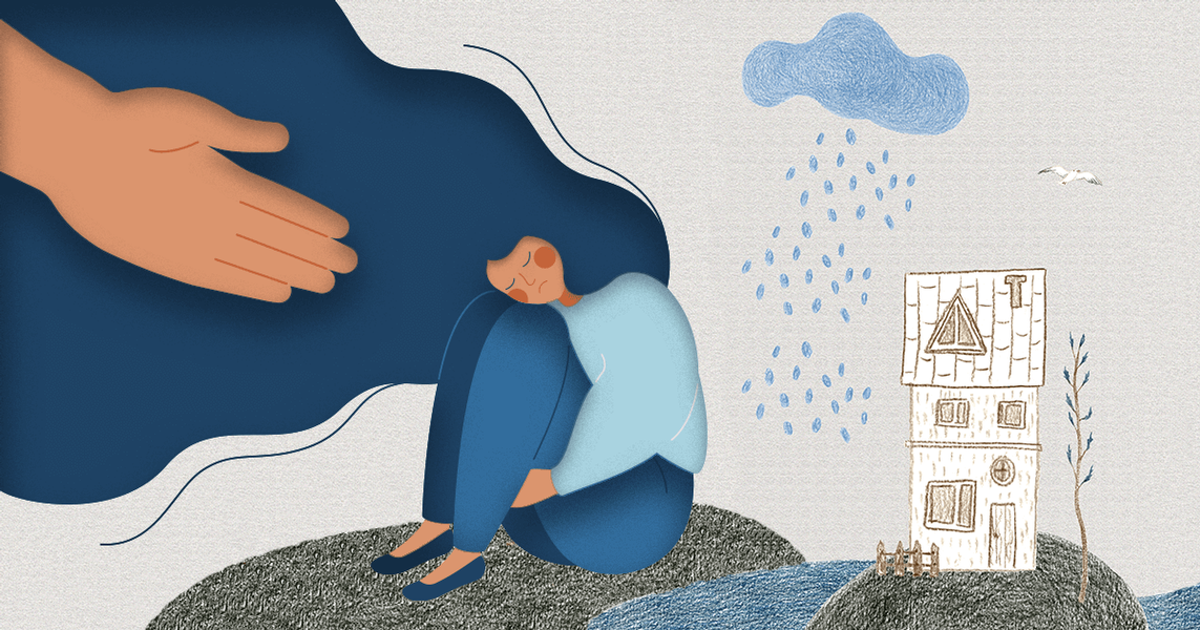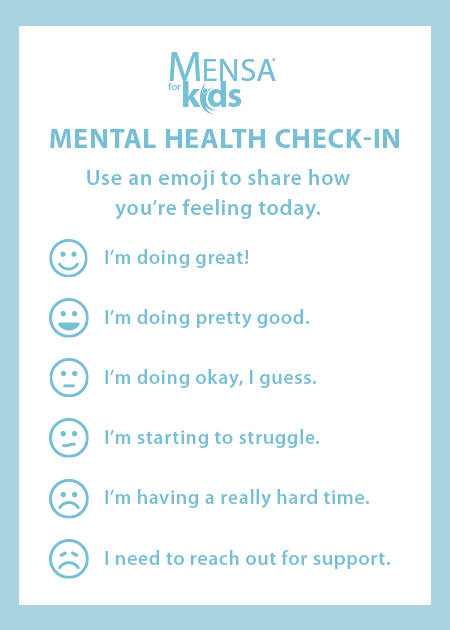
How are you doing? That’s a question that’s being asked a lot these days with a whole new depth of meaning behind it than ever before. And for good reason.
I was a full-time teacher when I was being diagnosed with multiple sclerosis. We found a spot on my brain and had to wait two weeks to find out about tests and what they could mean. I was close to my eighth-grade students and didn’t want them to worry, so I put on a brave face and acted like nothing was wrong. Or so I thought.
They called me out about three days after my diagnosis for “not being you” — they used my own teaching about “emotional leakage” against me! (I might have been proud they learned something!)
Emotional leakage is where you say one thing, something like “I’m fine and everything’s good,” but your body tells a different story. I had a choice: I could lie to my students, or I could tell them the truth. I came clean and those precious kids rallied around me like an amazing army. It was beautiful.
You may be currently facing a similar choice with your children.

I’m not comparing an M.S. diagnosis to a pandemic but am instead suggesting you use it to show children when you’re not OK and things are rough. We’re all under extraordinary stress. None of us — regardless of age — is without worry or concern. This is the time to talk to your children, like you possibly haven’t ever before, about how you’re feeling. You can explain that you’re not sure what the future holds but that things will be OK. Or that you are sad/angry/mad that you can’t go on vacation or to summer camp. You can tell them that you’re worried, tired, scared, angry, and just plain not OK right now.
It’s important to share that they’re not a burden or problem and that their job is to continue focusing on schoolwork and house rules and sharing concerns with you. They should know they have a role in helping the family through this pandemic. They realize that at-home learning adds to your stress. Contrary to what you instinctively feel, this isn’t burdening them with “adult business” but is giving them room to understand what’s happening in the environment they’re in.
I read a story this week where a 6-year-old had a 45-minute meltdown with her nanny (both parents are medical professionals) and finally was able to reveal that she hurt everywhere. She was angry/scared and was afraid her parents weren’t coming home because of the sickness. A 6-year-old child had been able to absorb all of that just from being in the household. This is with a full-time care giver (and parents) who never said anything about the pandemic to her.
What emotions do you think your children have absorbed?
I think the best way to protect mental health during this time is to make it OK to not be OK. This happens by talking about how you’re feeling. You might be shocked at what your children reveal. The key to this being successful is that no one can use anything said against anyone else in any way, and no one gets to take anything personally. This may be hard for all of you. Our natural reaction to hearing negative things about ourselves is to defend and counter, but you can’t do that here. You must just hear the words and realize that your child isn’t talking about you, they’re talking about a behavior you’re exhibiting during a time of extreme stress and unrest.
Make it OK to not be OK. This happens by talking about how you’re feeling. You might be shocked at what your children reveal.
Maybe you’re “the most annoying person on Earth.” Instead of responding, look deeper into that statement. A potential response might be, “OK, can you give me three specific things I’m doing to annoy you?” Your child’s answer might help you better understand your child’s underlying streess — what’s causing them to see you as “annoying.” Perhaps you are interrupting their reading, which might be the only time they’re not thinking about what’s happening in the world right now — a needed escape.
The idea is that when your child brings negative feelings to you, they’re using you as the safe place to put their fears and frustrations. The same goes for you. A few things may help you learn to share your emotions:
Another word I suggest avoiding is “should.” Nothing good comes after the word should. It’s what I call “perfect world” syndrome. When using “should” in reference to someone else, you’re usually sharing something that isn’t positive “She should have.…” “They should be….” “If you had been where you should have been….” You are talking about something that can’t be changed and are typically making the person feel worse about it. It is a hard habit to break but one that is valuable to build connections with people.
You may think that you’re not showing your stress or worry, but you are, and your children will most likely point out your “not being you,” if given the chance. At that moment you get to decide, just as I did, if you’re going to trust your children and let them rally around and support you, or if you are going to try to continue to carry this pandemic by yourself. It’s a heavy burden. Let others help.

Jamie, American Mensa’s Gifted Youth Programs Manager, has been a state-licensed teacher for more than 15 years. She received her Gifted Education certification in 2016. She was recognized as the 2008 Teacher of the Year at Bowie Middle School in Amarillo, Texas, and was a finalist for the 2011 Texas Speech Communication Association’s Teacher of the Year.